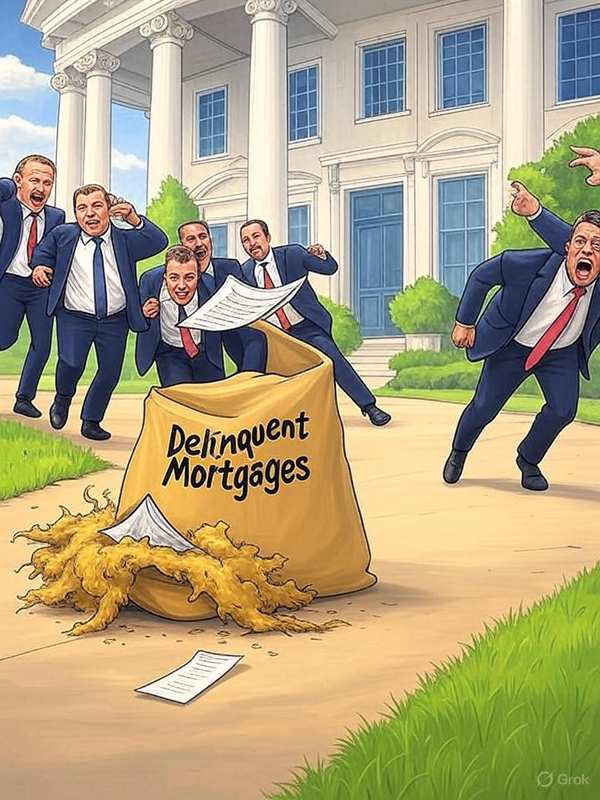

Uncle Sam’s Mortgage Hangover: A Silent Wave Few Are Watching
During the pandemic, Uncle Sam was pouring out money with abandon. Ultra-low interest rates combined with sweeping borrower protections created the illusion of an unstoppable housing boom. Home prices skyrocketed, buyers flooded the market, and owners felt invincible.
But now… the bill is coming due.
A Bubble Built on Borrowing: The Debt Behind the Boom
As the Biden Administration steps aside and a new presidency takes over, what remains isn’t just inflated home values, it’s a mountain of unpaid debt. HUD’s latest numbers show that nearly 11% of FHA-insured loans are delinquent, that’s one in nine mortgages. Instead of tackling the problem straight-on, the administration went for the “easy money” route. They assumed rising prices would sweep the issue under the rug and avoided foreclosures entirely. Most delinquencies were simply left to sit, with little legal action. Borrowers were handed band-aids like forbearance plans, loan modifications, partial claims, streamlined refinances, and payment deferrals. Not solutions, just delays.

A Quiet Escape: Selling Off the Bad Loans
Rather than risk political backlash by foreclosing themselves, the government took a quieter path: they sold off delinquent mortgages in bulk. These are called Non-Performing Loans (NPLs), loans with no payment for 90+ days. Through programs like the Distressed Asset Stabilization Program (DASP), FHA and HUD have bundled these loans and sold them at steep discounts to hedge funds, private equity firms, and institutional investors. The messy auctioning and foreclosures are now being handled by private actors, letting the government stay under the radar.
Why? Simple: When Uncle Sam forecloses, it’s a scandal. When private firms do it, it’s just business.
Why Florida Is Front and Center
This matters deeply in Florida, which has one of the highest concentrations of FHA loans in the country, especially in Miami-Dade, Broward, Lee, and Polk counties. During the boom, many of these borrowers locked in ultra-low rates around 2.5–3% on properties now falling in value. By the end of 2024, FHA’s national delinquency rate hit over 11%, four times higher than that of conventional mortgages, rising 57 basis points year-over-year. Florida led the nation with a 99-basis-point spike in quarterly mortgage delinquency, the steepest increase among all states. These figures underscore how deeply exposed Florida’s FHA borrowers are, and how vulnerable the housing market will be as-forbearance and other protections fade.
The Real Fallout: Affordability and Flight
With home prices slipping and insurance, HOA, and tax costs soaring, many owners are underwater, owing more than their home is worth. But the root issue is bigger: price-to-income ratios are unsustainable. The economy simply can’t support inflated home values. While prices jumped during the boom, wages and rents didn’t keep pace. In South Florida, this mismatch is worsened by rising operational costs and structural inefficiencies, sparking concern among both owners and investors. The result? Many are walking away, refusing to pour cash into a depreciating asset.
As more of those NPLs flow to private investors, expect institutional foreclosures to climb, followed by a wave of REO (bank-owned) properties eventually hitting the market.
A Market Reset… or Opportunity?
Could this trigger a broader correction? Possibly. But here’s the flip side for savvy buyers: this might be the clearest signal in years to grab real estate at deep discounts. The “Good Uncle Sam” era of easy credit and silent deferrals is over. Now, a quiet wave of foreclosures is underway, and with it, the real possibilities for those watching closely.




Comments